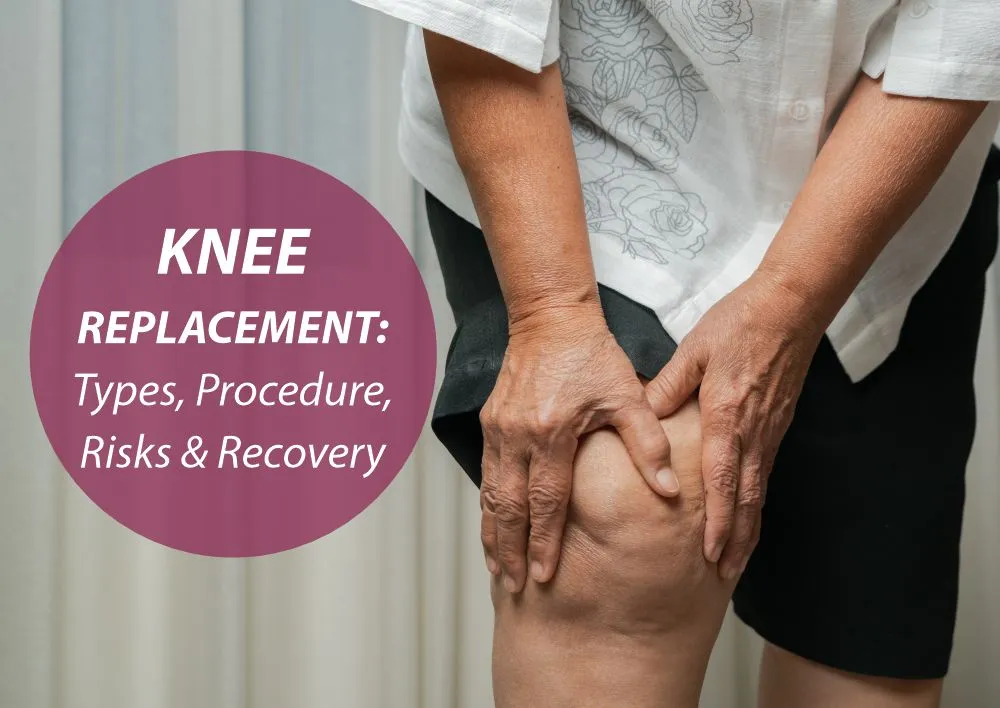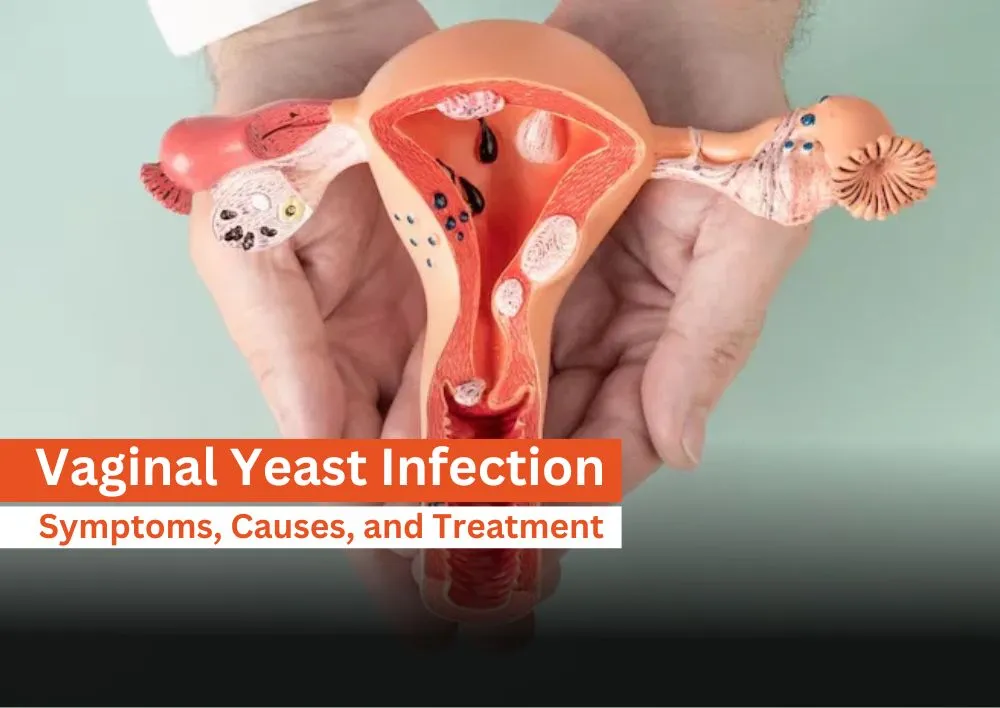Knee Replacement: Types, Procedure, Benefits, Risks and Recovery
Knee pain and reduced mobility can significantly impact daily activities and overall well-being. For individuals suffering from severe knee conditions, knee replacement surgery offers a ray of hope. This surgical procedure involves replacing a damaged or diseased knee joint surface with an artificial one.
In the past five years in India, knee replacement surgeries have surged by 2.5 lakh times. As people age, they may encounter knee problems associated with aging. The majority of knee replacement patients in India, between 50 and 65 years old, surpass 2.5 lakh every year.
In the early stages of knee problems, medication, and walking can be beneficial. However, for severe cases like arthritis and injuries, Knee Replacement Surgery becomes a viable option.
Choosing the best knee replacement hospital is crucial for regaining mobility and living pain-free. Miracles Apollo Cradle/Spectra stands out as the best knee replacement hospital in Gurgaon, offering a unique blend of expertise, innovation, and care. Our team of renowned orthopedic surgeons in Gurgaon ensures successful knee replacements, utilizing cutting-edge technology for precision and faster recovery. Our patient-centric approach prioritizes comfort, rehabilitation, and exceptional care at every step.
Don't let knee pain limit your life. Contact the best doctor for knee replacement near you and take the first step towards rediscovering your movement and joy.
We will discuss the types of knee replacement, the surgical procedure, potential risks, and the recovery process.
What is Knee Replacement Surgery?
Knee replacement surgery(knee arthroplasty) is a medical procedure. It helps relieve pain, restore function, and improve the quality of life for individuals struggling with severe knee conditions. It is usually recommended for patients who suffer from severe knee conditions such as osteoarthritis, rheumatoid arthritis, post-traumatic arthritis, or other degenerative diseases.
What are the Types of Knee Replacement Surgery?
Several types of knee replacement surgeries exist, each with its advantages. The choice of a procedure depends on factors like specific conditions, extent of joint damage, and overall health. The three main types are Total Knee Replacement (TKR), Partial Knee Replacement (PKR), and Revision Knee Replacement.
-
Total Knee Replacement (TKR):
-
Description: TKR is the most common type, where all three components of the knee joint are resurfaced.
-
Indications: Recommended for complete damage or arthritis affecting the entire knee joint.
-
Partial Knee Replacement (PKR):
-
Description: Also known as unicompartmental knee arthroplasty (UKA), it replaces the damaged portion of the knee joint.
-
Indications: Recommended for localized damage, limited to a specific compartment.
-
Revision Knee Replacement:
-
Description: Performed when a previous knee replacement has worn out or failed.
-
Indications: Required due to infection, instability, loosening of implants, or complications from a previous knee replacement.
Procedure of Knee Replacement Surgery
The procedure for knee replacement surgery involves several steps to replace the damaged or diseased knee joint with an artificial one.
Here is an overview of the surgical process that includes pre-operative preparation, surgical procedure, and post-procedure care:
The surgical process involves pre-operative preparation, the actual procedure, and post-procedure care.
Preoperative Preparation:
-
Medical Evaluation: A thorough evaluation ensures the patient's overall health.
-
Discussion: The surgeon discusses the procedure, benefits, and potential risks with the patient.
Surgical Procedure:
-
Anesthesia: Spinal/General anesthesia is administered to ensure the patient's comfort.
-
Incision: An incision is made over the knee to expose the joint.
-
Resection of Damaged Tissues: Damaged cartilage on the surface of the bone is carefully scraped off.
-
Bone Preparation: The remaining bone surfaces are shaped to accommodate prosthetic components.
-
Placement of Prosthetic Components: Artificial components, including the femoral, tibial, and patellar components, are securely attached to the original bone.
-
Stability and Range of Motion Check: The surgeon checks the stability and range of motion of the new knee joint.
-
Closure: The incision is closed with sutures or staples.
Post-operative Care:
-
Recovery Room: The patient is monitored in the recovery room as the anesthesia wears off.
-
Hospital Stay: The length varies, with most patients staying for 3-5 days.
-
Pain Management: Prescribed pain relievers help manage postoperative pain.
-
Lifestyle Modification: Patients receive advice on protecting the new knee joint, including weight management and activity modification.
-
Physiotherapy and Rehabilitation: Post-surgery, exercise sessions enhance mobility, strength, and range of motion.
-
Follow-up Appointments: Regular follow-ups with the orthopedic surgeon monitor progress.
Benefits of Knee Replacement Surgery
Knee replacement surgery can be life-changing for people suffering from chronic knee pain and dysfunction. Here are some of the key benefits:
-
Reduced Pain: Relieves pain associated with bone-on-bone grinding by replacing damaged cartilage.
-
Improved Mobility: Restores joint function, stability, and mobility, enabling ease in daily activities.
-
Enhanced Quality of Life: Eases chronic knee pain, enhances mobility, and restores knee function, leading to an improved sense of well-being.
-
Improved Sleep: Relief from knee pain allows for better sleep quality.
-
Reduced Dependence on Medication: Successful knee replacement reduces the need for long-term medication use.
-
Long-lasting Results: Advanced knee implants offer a long-term solution, designed to last 15-20 years or longer.
Risks of Knee Replacement Surgery
Knee replacement surgery procedure is typically considered safe. But like any surgical procedure, this surgery also carries some short-term and long-term risks and complications such as:
Short-term Risks:
-
Infection
-
Blood clots.
-
Stiffness and pain
-
Nerve or Blood Vessel Damage
-
Bleeding
-
Allergic reactions
Long-term Risks:
-
Persistent pain
-
Implant failure
-
Joint instability
-
Fractures
-
Limited range of motion
Recovery After Knee Replacement Surgery
Recovery from Knee Replacement Surgery is not an overnight process. It is a journey that involves different stages. So be patient and constant with care and rehabilitation. It will help improve your mobility and return to an active lifestyle.
The stages of the recovery process are:
Immediately After Surgery:
-
Stay in the hospital: The length of stay in the hospital depends on your progress. Usually, patients stay in the hospital for 2-3 days.
-
Pain management: Pain relieving medications will help manage pain and discomfort.
-
Start moving your leg: Early movement of the leg helps prevent blood clot formation and promote healing. The patient will be helped with exercises like leg lifts and ankle pumps.
-
Physiotherapy: To regain strength, flexibility, and range of motion, A physiotherapist specialist will guide you through exercises.
First 6 Weeks:
-
Home Recovery: Once discharged from the hospital, patients continue their recovery at home.
-
Incision Care: Patients should follow proper wound care instructions. Keep the incision clean and dry to prevent the possibility of infection.
-
Pain Management at Home: Pain management continues with prescribed medications. As pain decreases, the dosage is gradually reduced.
-
Mobility Exercises: Physical therapy exercises focus on strengthening surrounding muscles, regaining knee mobility, and improving overall joint function.
-
Use of Assistive Devices: Patients may use crutches or walkers initially to assist with mobility. But after 2-3 weeks, the gradual change to walking without aids is encouraged.
6-12 Weeks:
-
Increase weight-bearing activities: The patient will proceed from partial to full weight-bearing activities on the operated knee.
-
More advanced physiotherapy: Physiotherapy exercises will target a specific group of muscles.
-
Slowly return to activities: The patient can start low-impact activities like walking and swimming.
3-6 Months:
-
Improved strength and flexibility: The patient will regain most of the pre-surgery range of motion and strength.
-
Return to most activities: With the doctor's permission, the patient can resume their activities such as biking, playing sports, etc.
-
Continued physiotherapy: Physiotherapy will continue to maintain strength and prevent stiffness.
Beyond 6 Months:
-
Long-term results: Most patients experience effective relief from the pain and improved mobility in the long term.
-
Weight Management: Patients are advised for long-term lifestyle modification to manage a healthy weight.
-
Regular Follow-Up Appointments: Routine follow-up appointments with the orthopedic surgeon allow for assessing the replaced joint's integrity and overall joint health.
Conclusion:
Knee replacement surgery is a life-changing process that has transformed the lives of countless individuals. It restores the functioning of the knees and provides relief from chronic pain. Understanding the process of knee replacement, its benefits, potential risks, and recovery is important.
If you or a loved one is considering knee replacement, consult with the best knee replacement surgeon to make informed decisions.
Miracles Healthcare is the best orthopedic hospital in Gurgaon. We have a team of the best doctors for knee replacement in Gurgaon. We are well-known for our cutting-edge technology for minimally invasive procedures and proven track record.
Miracles Healthcare offers comprehensive healthcare services through multiple facilities: Miracles Apollo Cradle, Miracles Apollo Cradle/Spectra, Miracles Fertility & IVF Clinic, and Miracles Mediclinic. Our facilities are located in Sec 14, Sec 56, and Sec 82, making daily healthcare more convenient for the people of Gurgaon.
Don't let knee pain hold you back, book your consultation with a knee replacement surgery specialist near you to get personalized care tailored to your needs.







_in_Pregnancy.webp)





Was the information useful?
0 0